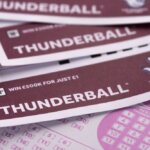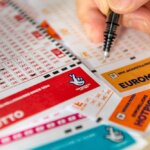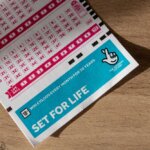When assessing UK lotteries, the odds of winning are a critical factor for players seeking to make an informed decision. Among the plethora available, each game’s structure significantly influences the likelihood of winning. Lotteries can range from local charity draws with smaller prize pools but higher odds of claiming a prize, to the national lotteries offering life-changing sums but with considerably slimmer chances of success.
The National Lottery, operated by Camelot Group, features several games including Lotto and EuroMillions, each with different odds. Lotto is known for being the flagship game, boasting better chances to win any prize compared to EuroMilliles; however, the latter offers larger jackpots due to a broader European player base. Additionally, the Health Lottery and Postcode Lottery present alternative opportunities, often with a social benefit component as a portion of the proceeds goes towards charitable causes.
Overview of UK Lotteries
In the UK, several lottery games offer different odds and prize structures, providing a variety of chances for players to win.
National Lottery Games
The National Lottery hosts multiple games including Lotto, Lotto HotPicks, and EuroMillions HotPicks. The standard Lotto draw is the flagship game with a one in 45,057,474 chance of winning the jackpot.
EuroMillions
EuroMillions is a transnational game with a wider European player base. The chance of winning the jackpot is approximately one in 139,838,160, making it more challenging due to the larger pool of players.
Set For Life
Set For Life offers a unique prize structure, aiming to provide winners with a fixed income of £10,000 per month for 30 years. The odds of winning the top prize are around one in 15,339,390.
Thunderball
Thunderball presents more favourable odds with a one in 8,060,598 chance of winning the top prize, with draws taking place four times a week. This game offers a fixed jackpot of £500,000.
Odds of Winning
When considering which UK lottery offers the best chance of winning, it’s important to examine the odds of various games, analyse the probabilities, and differentiate between the likelihood of winning the jackpot and other prizes.
Comparing Game Odds
The National Lottery and EuroMillions are two of the biggest games in the UK. The National Lottery, or Lotto, offers odds of 1 in 45,057,474 for hitting the jackpot, while EuroMillions presents longer odds at 1 in 139,838,160 for the top prize.
| Lottery Game | Jackpot Odds |
|---|---|
| Lotto | 1 in 45,057,474 |
| EuroMillions | 1 in 139,838,160 |
Winning Probability Analysis
Scratchcards and Instant Win games provide better odds for winning smaller prizes, with chances as favourable as 1 in 4 for a return on a player’s bet. While the top prizes for these games are significantly lower than the Lotto or EuroMillions jackpots, they offer more frequent winnings.
Set For Life is another popular UK lottery choice, giving players a chance of 1 in 15,339,390 to win a top prize of £10,000 a month for 30 years. This is a unique proposition, offering a different type of long-term payout.
Jackpot vs Other Prizes
In the Lotto, the probability of winning any prize is about 1 in 9.3, and for EuroMillions, it’s approximately 1 in 13. The likelihood of winning smaller prizes increases dramatically compared to the elusive jackpot.
| Prize Category | Lotto Odds | EuroMillions Odds |
|---|---|---|
| Any Prize | 1 in 9.3 | 1 in 13 |
| Jackpot | 1 in 45,057,474 | 1 in 139,838,160 |
In conclusion, each game has its balance of probability and potential reward, with lotteries like the National Lottery offering better chances for the jackpot, and games like Scratchcards offering more frequent, but smaller payouts.
Ticket Pricing and Purchasing
In the United Kingdom, lottery ticket prices vary, and there are multiple ways to purchase them. Bulk buying options are available for those looking to increase their chances of winning by purchasing multiple entries at once.
Cost of Various Lotteries
- Lotto: The standard Lotto ticket costs £2 per play.
- EuroMillions: A single EuroMillions entry is priced at £2.50.
- Set For Life: Tickets for Set For Life are £1.50 per line.
- Thunderball: Playing Thunderball costs £1 per entry.
Ways to Buy Tickets
Tickets for UK lotteries can be purchased in two primary ways:
- Physical Retailers: Lottery tickets can be bought at authorised outlets, including supermarkets, newsagents, and convenience stores.
- Online Platforms: The National Lottery and other licenced operators offer online ticket purchasing through their websites and mobile apps.
Bulk Buying Options
Lotteries allow the purchase of multiple tickets at once, providing the following options for bulk buying:
- Lotto: Players can buy up to 7 lines of numbers on a single play slip.
- EuroMillions: It is possible to buy up to 10 play slips at a time for additional entries.
- Set For Life: Up to 4 lines can be played on a single ticket.
- Thunderball: Players may select up to 7 lines per ticket on a play slip.
Statistical Perspectives
In analysing UK lotteries, one must consider historical data and how the odds have shifted through the years to understand which lottery holds the best chance of winning.
Historical Win Rates
The National Lottery, comprising Lotto and EuroMillions, traditionally offers a higher number of overall winners due to its longer history and more frequent draws. Data indicates that the Lotto game has seen millions of winners since its inception in 1994. EuroMillions, introduced in 2004, boasts a lower win rate due to its larger international pool of players but still claims a significant number of UK winners.
- Lotto:
- Average annual winners (1994-present): Over 1 million prize winners
- Grand prize win rate: Approximately 1 in 45 million
- EuroMillions:
- Average annual winners (UK, 2004-present): Over 500,000 prize winners
- Grand prize win rate: Approximately 1 in 139 million
Odds Variation Over Time
The odds of winning a lottery can fluctuate over time due to changes in game format and rules.
- Lotto changes:
- October 2015: Number pool increased from 49 to 59, worsening odds of jackpot from 1 in 14 million to 1 in 45 million.
- Guarantee of at least one millionaire per draw introduced, improving chances for significant wins despite increased difficulty for the jackpot.
- EuroMillions changes:
- September 2016: Number pool increased, total numbers from 50 to 60; Lucky Stars from 11 to 12, jackpot odds lengthened from 1 in 117 million to 1 in 139 million.
- The introduction of the “European Millionaire Maker,” increasing overall winner potential.
Improving Winning Chances
Winning a lottery is a combination of luck and strategy. There are methods players can use to improve their odds, although there is no guarantee of a win.
Strategic Number Selection
Players often choose numbers based on dates of significance, which limits their choice to 31 or below. Instead, opting for a spread across the full range of possible numbers can cover more combinations and potentially reduce the chance of sharing the prize, as higher numbers are selected less frequently.
- Avoid common patterns: Sequential numbers or visually appealing patterns on the play slip are more likely to be played by others.
- Consider less chosen numbers: Numbers above 31 or those that are less commonly selected may reduce the likelihood of splitting winnings.
Syndicate Play
Joining a syndicate, where a group of people pool their money to buy more tickets, effectively increases an individual’s chance of winning. The trade-off is that any wins must be shared among the members of the syndicate.
- More tickets, more chances: Each additional ticket increases the possibility of a win.
- Shared cost: The financial burden of purchasing multiple tickets is divided among the group.
Lottery Systems and Software
Various systems and software claim to improve winning chances by analysing past draw patterns and suggesting potentially winning combinations.
- No predictive power: While intriguing, these systems cannot predict outcomes as lotteries are random by design.
- Cost-benefit analysis: Players should weigh the cost of these systems against the realistic benefit they provide.
Impact of Winning
The aftermath of winning the UK lottery can significantly affect one’s financial situation and lifestyle. Winners must navigate the complexities of wealth management and the decision to remain anonymous or go public.
Financial Planning after Winning
Upon securing a lottery win, immediate financial planning is crucial. Winners should:
- Engage a financial adviser to create a tailored investment strategy.
- Formulate a budget to manage newfound wealth responsibly.
These steps ensure that winners can maintain financial stability and maximise the benefits of their windfall.
Life Changes and Anonymity
Winning the lottery can induce transformative life changes:
- Winners may experience shifts in social dynamics and personal relationships.
- The choice to remain anonymous can protect winners from unwanted attention and preserve privacy.
This choice is a personal one and can profoundly impact the winner’s future and sense of security.
Conclusion
When assessing the UK lotteries, The Health Lottery stands out with better odds for winning any prize, which are approximately 1 in 9.7. In contrast, the National Lottery’s Lotto has odds of 1 in 9.3 of winning a prize, but this includes a free lucky dip ticket for another draw, which can be seen as less immediately satisfying than winning a prize.
The EuroMillions, while offering larger jackpots, comes with steeper odds at 1 in 13 for winning the smallest prize. It’s important for players to consider that larger jackpots often mean longer odds.
If players are seeking to win any prize, they might find the Thunderball a balanced option, presenting odds of 1 in 13 of winning, with the added benefit of a fixed £500,000 top prize, which is not split among winners.
One must weigh the trade-off between the excitement of chasing larger jackpots and the practicality of aiming for more achievable, though smaller, prizes. The choice depends on individual preference for risk and reward.
In conclusion, each lottery has its appeal, and there are varying chances across different games. Participants should play responsibly and within their means, as the primary goal is to support good causes while potentially earning a reward.





